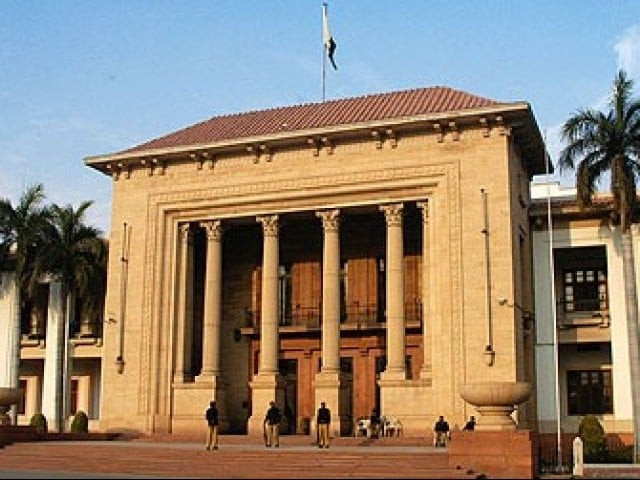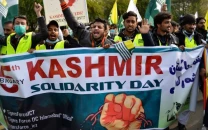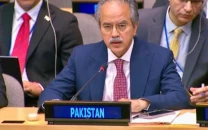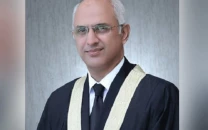Extended interim set-up or governor’s rule?
Leading experts say matter might end up before courts

The leading political experts on Sunday said that the talk of extending the caretaker government or allowing the governors to rule Punjab and Khyber-Pakhtunkhwa by ending the interim setups was not only problematic but above the Constitution and the matter may soon end up before the courts.
Not holding elections of Punjab and K-P assemblies within 90 days in the wake of their dissolution on January 14 and 18, respectively, has triggered a constitutional and political debate on all forums. Yet, there are talks and more talks coupled with threats of dire consequences but no solid way forward.
As the time for interim setups in both the provinces is reaching the defined constitutional limit, the experts say that the only way forward was that the political parties should sit across the table and find a way out while allowing the caretaker setups to continue as happened in past.
Ahmed Bilal Mehboob, the president of Pakistan Institute of Legislative Development and Transparency (Pildat), said that the caretaker set-up and holding of election within 90 days go hand in hand and since no elections have been held within 90 days, chances are that the caretaker set-up would also continue unless someone challenges it before the court and a judgement comes on it deciding the way forward.
The Pildat chief said that not holding elections within the stipulated time or allowing the caretaker government to go beyond its defined time period, was “something above the Constitution”, saying it will continue until challenged.
“If the caretaker set-up goes, the governor will rule the province,” the Pildat chief said, adding that usually the caretaker set-up works until a new elected government comes but if that doesn’t happen then there are only two possibilities: allow the caretaker set-up to continue just like it did after former premier Benazir Bhutto’s assassination or impose governor’s rule.
Mehboob said that Article 232 (proclamation of emergency on account of war, internal disturbance, etc) deals with governor’s rule but fulfilling its condition was not an easy task. Article 232(1) states: “If the President is satisfied that a grave emergency exists in which the security of Pakistan, or any part thereof, is threatened by war or external aggression, or by internal disturbance beyond the power of a Provincial Government to control, he may issue a Proclamation of Emergency.”
It adds: “Provided that for imposition of emergency due to internal disturbances beyond the powers of a Provincial Government to control, a resolution from the Provincial Assembly of that Province shall be required.
“Provided further that if the President acts on his own, the Proclamation of Emergency shall be placed before both Houses of Majlis-e-Shoora (Parliament) for approval by each House within ten days.”
The Pildat president opined that there was no proper mechanism to extend the caretaker government
He said, “There is hardly any chance that the caretaker set-up can survive if the matter is challenged before the court.”
However, he said, the vacuum had to be filled and there was no option but to allow the governor to rule the province.
“What benefit will it give to the PTI,” he questioned before answering, “nothing”.
To a question if the Supreme Court could pass any direction after the time for the caretaker set-up lapses, Mehboob said: “Keeping the current mood of the apex court in view, it can give any direction but it will have to give a mechanism for that too.”
He said it was time for the political parties to sit together and find a way forward, saying the caretaker set-up could meanwhile continue just like it did after Benazir’s assassination.
Renowned political expert Zaigham Khan envisaged that another constitutional crisis was in the making, saying a debate would soon trigger about the legal cover of the extended caretaker set-up.
He said, “The legal community will soon debate upon it and it will ultimately end up before the court.”
Though there is no specific clause in the Constitution defining the exact time period for the interim set-up, he said, Article 224 of the Constitution read with the clauses that deal with elections make it clear that the time period for elections is the same for the interim government(s).
Since they are unelected and specifically mandated to hold elections, Zaigham said, the extension of the interim governments is “quite problematic” as the whole system of the government becomes idle.
He regretted that the constitutional challenges and crises are getting more and more complicated with each passing day.



















COMMENTS
Comments are moderated and generally will be posted if they are on-topic and not abusive.
For more information, please see our Comments FAQ